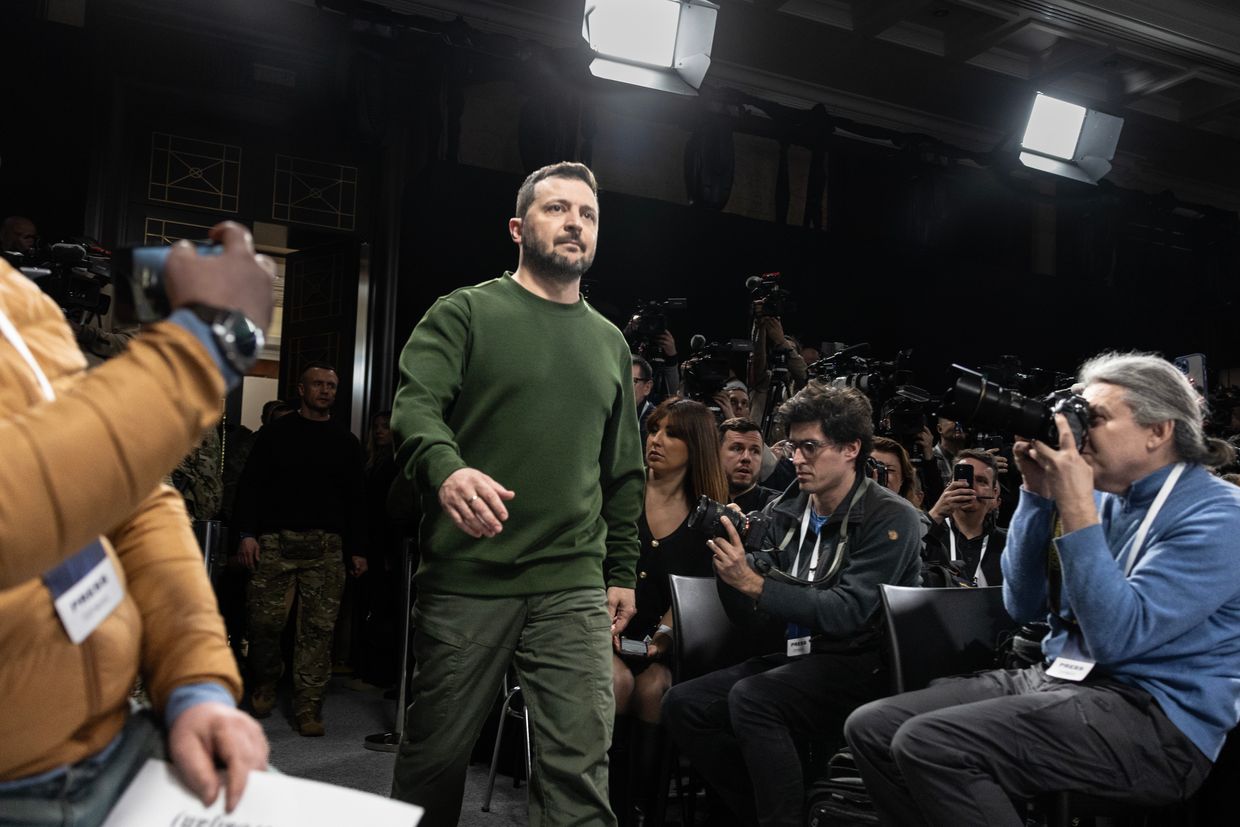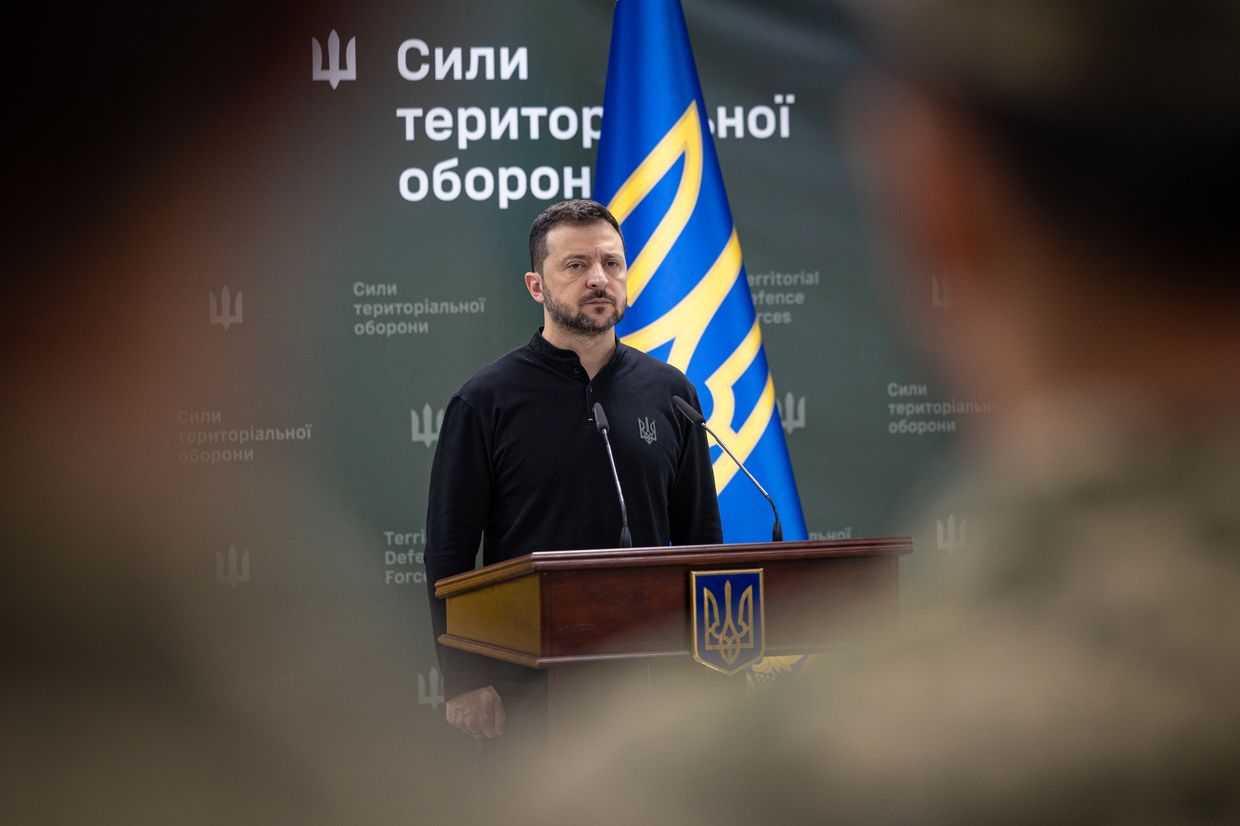Ukrainska Pravda (UP), one of Ukraine’s biggest news media sites, on Oct. 9 said "ongoing and systematic pressure" from the Ukrainian President's Office is threatening the work of the outlet, and is an attempt to "influence our editorial policy."
In a statement published on their site, UP said that officials are being ordered not to communicate with UP journalists, they were being denied access to official events, and businesses were coming under pressure to cease advertising on the outlet's website and not sponsor the events UP organizes.
The statement also highlighted a heated interaction between UP journalist Roman Kravets, and President Volodymyr Zelensky during a recent press conference at which Zelensky questioned the editorial independence of UP.
"These and other non-public signals indicate attempts to influence our editorial policy," the statement said.
"It is especially outrageous to realize this (comes) during the time of Russia's full-scale invasion of Ukraine, when our joint struggle for both survival and democratic values is extremely necessary."
The statement said that from now on, any attempts from the President's Office to pressure UP would be made public.
"Every such attempt only strengthens our motivation to expose corruption and ineffective management in higher echelons of power," the statement reads.
The Kyiv Independent contacted the President's Office for comment but had not received a response at the time of publication.
Ukraine's independent media has taken great strides since the EuroMaidan Revolution in 2014, but concerns have been raised since the start of Russia's full-scale invasion.
Reporters Without Borders (RSF) in June indicated the "shrinking" of press freedom in Ukraine, highlighting a "worrying decline" in support and respect for media autonomy and increased pressure from the state or other political actors inside Ukraine. The statement came one month after the annual press freedom index published by RSF showed Ukraine rising compared to last year.
As the Kyiv Independent reported in July, media still face different forms of pressure from authorities, according to Ukrainian editors and press freedom watchdogs, months after attacks on investigative journalists provoked a public outcry and condemnation.
"We have often encountered pressure in our work. But the last time we faced such economic restrictions was during the presidency of (Leonid) Kuchma," Sevgil Musayeva, editor-in-chief of UP, told the Kyiv Independent on Oct. 9, referring to Ukraine's president from 1994-2005.
Since being founded in 2000, two UP journalists have been killed — co-founder Georgiy Gongadze, and top editor Pavel Sheremet.
Gongadze, who was critical of then-President Kuchma, was kidnapped on Sept. 16, 2000. Two months later, his headless body was found in a forest some 70 kilometers outside Kyiv.
Belarusian-born Sheremet was blown up in his car in central Kyiv on July 20, 2016.
Musayeva stressed the importance of making public the pressure UP was facing, and called on international audiences to take note.
"Ukraine must remain a democracy, and freedom of speech is one of the most important values in a free society," she said.














